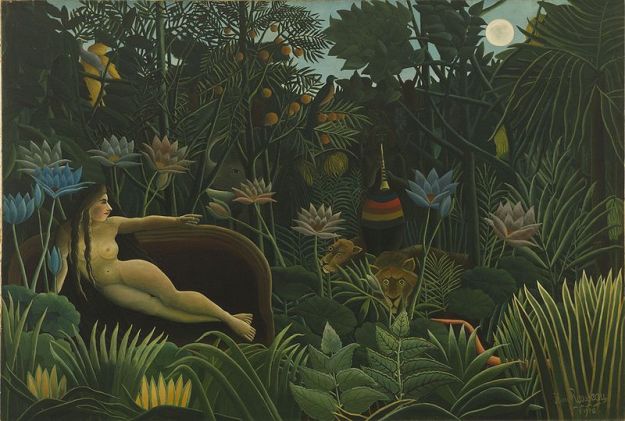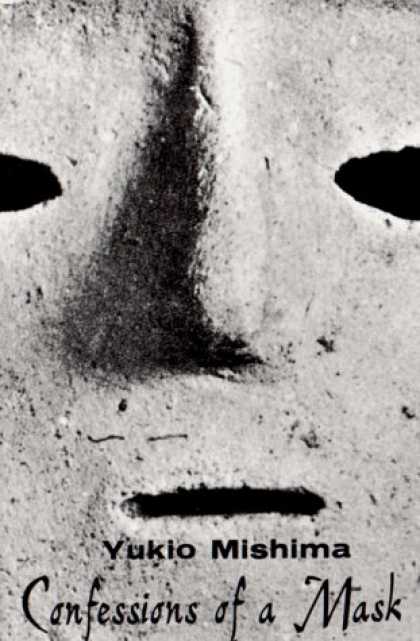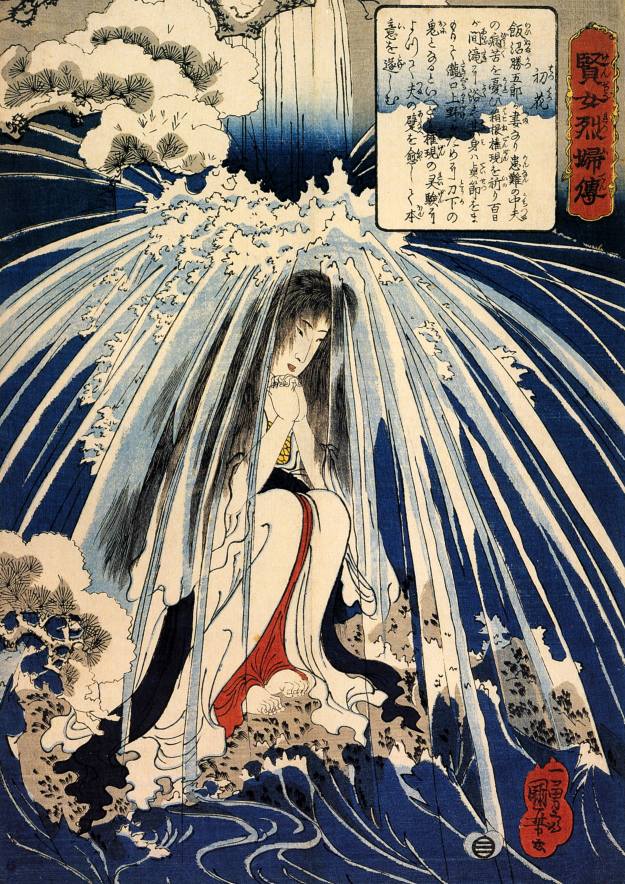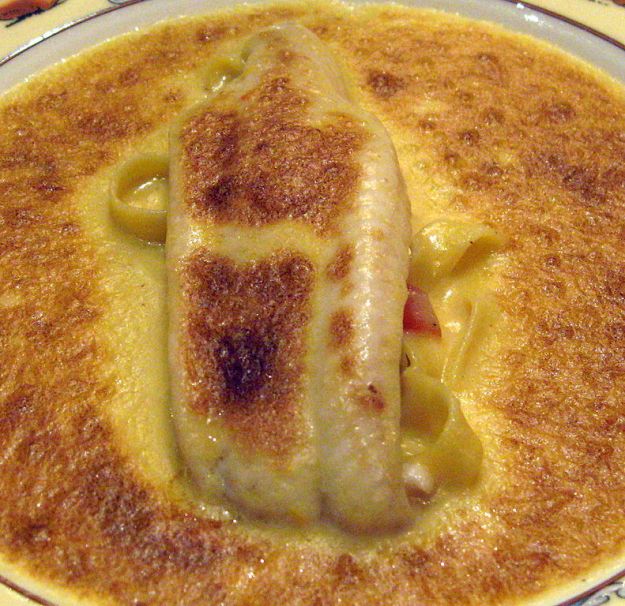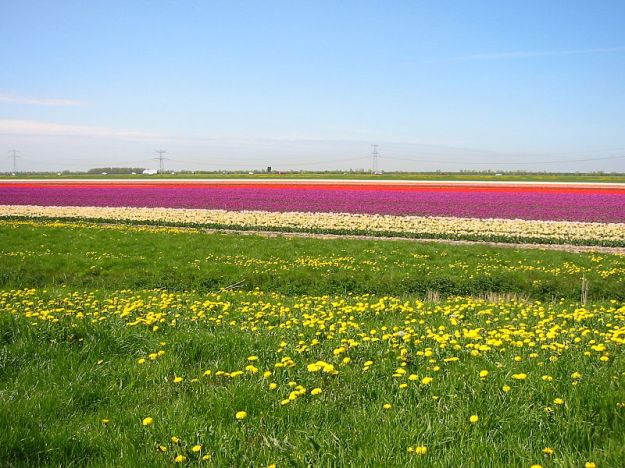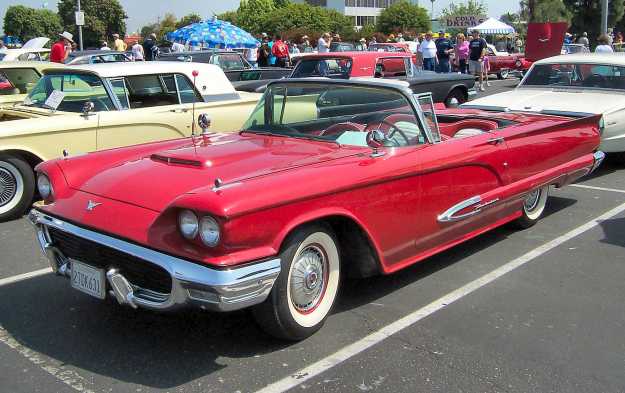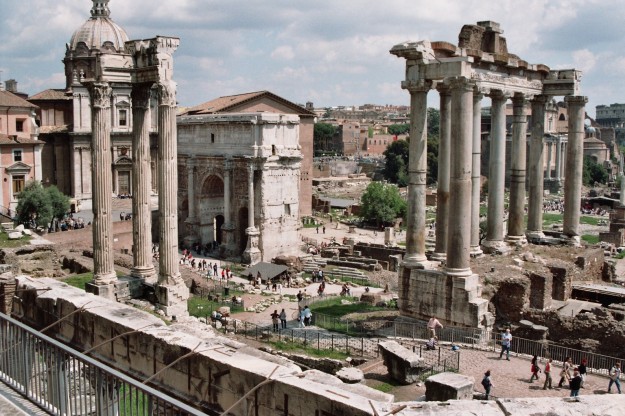People accept differences in behaviour and in dealing with each other to a certain extent. This acceptance is determined by mutual relationships within a worldview that gives an interpretation to the similarity and differences between people. This worldview also gives an interpretations to the similarities and differences between groups of people. Priests and leaders have a different place in society and they have other habits than labourers. Within a stable society with an uniform worldview, every individual and every group of people experience its place as necessary and appropriate within a higher order. The differences often have an interpretation and a higher purpose in a world order seen as predestined; every woman/man experiences her/his place and her/his life changes as perfectly normal – how extravagant and absurd the situation may seem in the eyes of outsiders.
In Africa men rest in the shade all day – in the Western world people work almost the whole day to sit half an hour in the sun. In Europe a walk to the next village takes a small hour – in Africa a similar walk of the same distance takes over half a day because all social contacts along the road are maintained.
 [1]
[1]
In the Western – modern industrialized – world many couples life together in a small family consisting of two partners and a few children. The children continue to live in the family house until they are old enough to live independently.
According to the Western ideal, marriage comes forth from a romantic love affair that continues after a few years in a marriage in which – after one year – successively two to four children are born. When the children themselves get married by a romantic love affair, the two partners end up living happy and satisfied together until old age. This small family is pretty mobile to move along with the possibilities that the labour-market can offer.
 [2]
[2]
The reality is often different than the ideal. First young people explore the world of entering into love relationships; they have a number of loose/fixed relations. After this orientation a partner choice follows for a long-term love affair. This romantic quest costs besides happiness, hope and expectations also disappointments, sadness and headaches; much literature and movies on this topic represent a summary of the difficulties. The starting love gets – with some luck and perseverance – shape in the vow of a long-term living together. After a number of seasons the partners decide to continue the long-term relationship in a marriage or cohabitation agreement. In reality approximately 36% of the marriages end in a divorce [3]. Everyday life does not live up to the common ideal. Within the small family, the relocation of labour to another part of the country is a sensitive event: who of both partners must revise her/his ambition in the labour market. A wedding or cohabitation agreement has also the characteristics of a business agreement in addition to a love relation.
More than half a century ago many people in the Western – agricultural – world lived together in an extended family [4] where children, parents with their brothers and sisters, and grandparents lived lifelong under one roof. A number of people died in the same bed in which they were born.
 [5]
[5]
In this extended family, honour, the reputation of the family and the survival of the house/farm was of great importance for the establishment of good life-long relationships. When the family honour was damaged, it was impossible for potential suitors from the extended family to find adequate life partners. A marriage arrangement was – next to a societal agreement – mainly a business agreement for the extended family. New members joined the extended family with an advance on their legacy and other members left the house with wedding gifts to live in another family. Marriages were often arranged – children were married off.
In some agricultural areas nubile daughters were given the possibility to get pregnant in an outbuilding of the farm. After the pregnancy was visible, the marriage followed immediately. This farming community did not wish to risk the survival of the farm by marriages without offspring. The Christian faith could never eliminate this ancient way of matrimonial agreements with an enlarged guarantee on progenies.
The local community society closely monitored the reputation of the extended families: everything was done to restrain the “biology between people”. Young marriageable women were constantly chaperoned by the close family. In the Catholic South Limburg around 1950, pensions and hotel rooms were checked at the beginning of the night by local police on unwanted extramarital activities. In November 1961 – in the Protestant village Staphorst – a man and a woman were driven by the local inhabitants on a manure cart through the village to their shame for an extramarital relationship [6].
At the end of the sixties an underneath sense of uneasiness in society – partly caused by an increased prosperity and by the availability of contraceptives – gave rise to freer relationships between men and women. Young people were young and alternative and they wanted to explore life and their sexuality more openly. The second-wave feminism also changed the relations between men and women. Young people had more freedom to engage in sexual relationships and there were different ways of cohabitation available. The new possibilities also cause more uncertainties – the society became adrift [7].
In our society most married couples remain monogamous during their marriage. Many other ways of cohabitation also show a large degree of monogamy. Though the number of illegitimate children rapidly increase in Netherlands: between 1985 and 1995, the percentage of children born out of wedlock has risen from over 8% to 16%. Afterwards, the percentage increased from 25% in 2000, 35% in 2005 to 45% in 2009. The reason for this is probably the decline in Christian morality and the increased prosperity with greater autonomy of women [8]. It seems that the sequential monogamy – partners are monogamous within a relationship, but the relationships change over time – increases in our society.
In addition to monogamy, other societies also know polygamy [9] – more women with one man – and polyandry [10] – more men with one woman – or mixtures of both forms. In sparsely populated areas or in societies where a deficit has arisen to one gender, these other forms are necessary for the survival of the population. In the Arab world many warfare with a high mortality of the male population took place; in order to maintain the population, more women married with one husband – in case the husband could maintain these women. In the Caribbean and around Miami men of a particular class are imprisoned for a very long time; women proceed to “passers marriages” with available men – the woman has a relationship with a man as long as this man can care for the woman. In thinly populated areas more men have a lasting relationship with one woman so that better support in education of her children is ensured.
In areas in Africa and in some regions of the Himalayas polyandry takes place. An example is written in the Mahābhārata where on female protagonist – Draupadi – is married to five brothers – five other main characters – after the mother of the five brothers has said that her sons must share what one of the brothers has obtained. The brothers lived successively one year with their wife from which five sons came forth [11].
 [12]
[12]
Another example of polygamy and polyandry is found at the Maasai in Kenya. Women and men live together in a mixture of polygamy and polyandry. A woman sometimes marries with an age group of men. A man is expected to give up his marriage bed to a guest/age mate – only the woman decides whether she wants to share the bed with the guest. All children of the woman are also the children of the spouse [13].
Bigamy, polygamy, polyandry and marriages between equal sexes are prohibited in many countries. Often there is a traditional taboo on uncommon forms of cohabitation. Many societies do everything – including banishment, hell and damnation – to eradicate unfamiliar cohabitation. Are other forms of cohabitation seen as inferior and unethical in order to suppress one’s own uncertainty and covert wishes for change? Or is it easy to regard other forms of cohabitation as an inferior cohabitation and as a consequence as deficit and unethical [14]? At tension and conflicts, there is the desire to demonstrate this inferiority and deficit of the others. Or, as Prof. Dr. W. Luijpen said in his lectures at the Technical University in Delft: “Evidence is compelling that others have to bend their knees “. This compelling may proceed in a stigma and the search for scapegoats within our neighbours. The tension may spiral in an armed conflict with massacres. Isn’t accepting other ways of cohabitation – and the acceptance of the uncertainty and tensions about our own way of cohabitation – a better solution?
[1] Source image: http://commons.wikimedia.org/wiki/File:Mt_Uluguru_and_Sisal_plantations.jpg
[2] Source image: http://en.wikipedia.org/wiki/File:Old_marriage_at_Plac_Kaszubski.jpg
[3] The Catholic Church recognises three grounds for divorce: death of one of the partners, “non- consummation the marriage” and a prolonged absence of one partner without a forecast on a return. See also: http://en.wikipedia.org/wiki/Divorce
[4] Source image: http://en.wikipedia.org/wiki/Extended_family
[5] Source image: http://en.wikipedia.org/wiki/File:FamiliaOjeda.JPG
[6] Source: Nieuwblad van het Noorden, 13 november 1961 – pagina 1.
[7] See also: Drift, Carla, Man Leben – One Life, A Biography. Amsterdam: Omnia – Amsterdam Publisher, 2012, p. 44 – 47.
[8] Source: http://nl.wikipedia.org/wiki/Buitenechtelijk_kind
[9] See also: http://nl.wikipedia.org/wiki/Polygamie
[10] See also: http://en.wikipedia.org/wiki/Polyandry
[11] See also: http://en.wikipedia.org/wiki/Mahabharata
[12] Source image: http://en.wikipedia.org/wiki/File:2716_PandavaDraupadifk.jpg.jpg
[13] See also: http://en.wikipedia.org/wiki/Maasai_people
[14] See also: Agar, Michael, Language Shock – Understanding the Culture of Conversation. New York: Perennial, 1994, 2002, p. 23, 37

